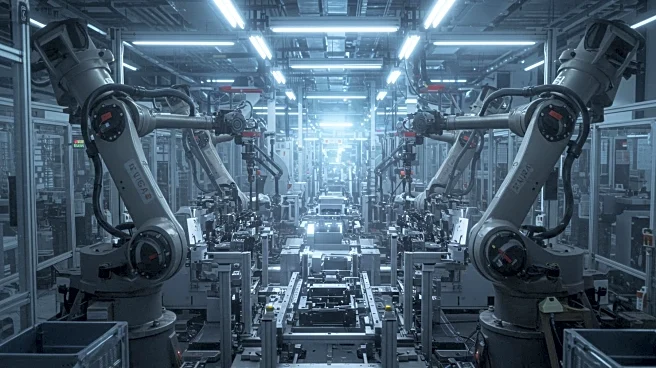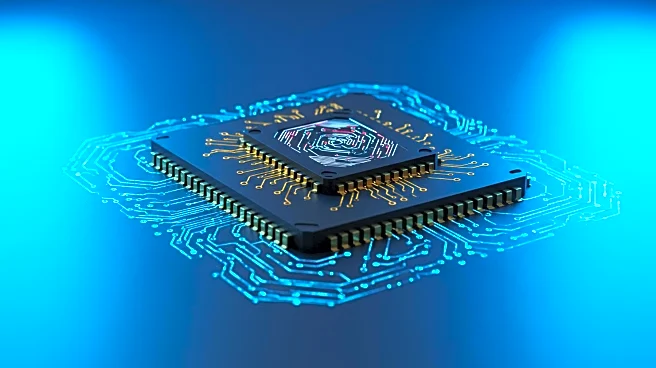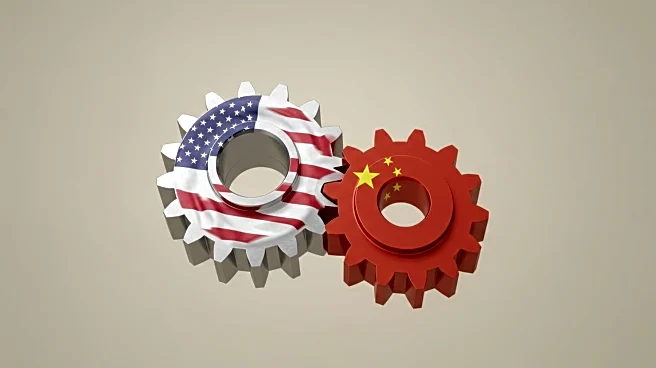What's Happening?
President Trump has implemented tariffs ranging from 10% to 15% on imports from various countries to encourage domestic manufacturing. This move aims to reduce the U.S. trade deficit, which stood at $1.2 trillion in goods in 2024. Despite the push for 'Made in America' products, many American companies continue to rely on overseas manufacturing due to lower labor costs. Companies like Apple, Nike, and Levi-Strauss manufacture a significant portion of their products abroad, driven by consumer demand for lower prices. The concept of 'Made in America' is often misunderstood, as it encompasses not just the physical production of goods but also the entrepreneurial spirit and innovation fostered within the country.
Why It's Important?
The tariffs imposed by President Trump are intended to stimulate domestic production and reduce reliance on foreign manufacturing. However, the economic impact is complex, as many American companies benefit from lower production costs abroad, which helps keep consumer prices competitive. The focus on 'Made in America' highlights the importance of nurturing innovation and entrepreneurship within the U.S., which can drive economic growth. The president's approach to higher education and diversity, equity, and inclusion (DEI) policies may have long-term implications for American entrepreneurship and economic prosperity.
What's Next?
The future of 'Made in America' may depend on fostering innovation and entrepreneurship, particularly through American universities, which serve as incubators for new businesses. The recent surge in new business applications suggests a continued interest in domestic entrepreneurship. However, the president's policies on higher education could impact this growth, potentially stifling innovation and economic development. The long-term effects of these policies will be felt across socioeconomic groups, influencing the trajectory of American manufacturing and entrepreneurship.
Beyond the Headlines
The broader implications of the 'Made in America' initiative extend beyond manufacturing to encompass the cultural and economic values of innovation and entrepreneurship. The focus on patents and new business applications highlights the importance of intellectual property and the entrepreneurial spirit in defining American-made products. The president's stance on higher education and DEI policies may have ethical and cultural dimensions, affecting the inclusivity and diversity of the entrepreneurial landscape.











